Missoula’s Johnson Street Shelter Closure Raises Questions on Homeless Strategy
Missoula shuts down Johnson Street Shelter after four years, highlighting over a decade of failed homeless policies and years of COVID fund mismanagement
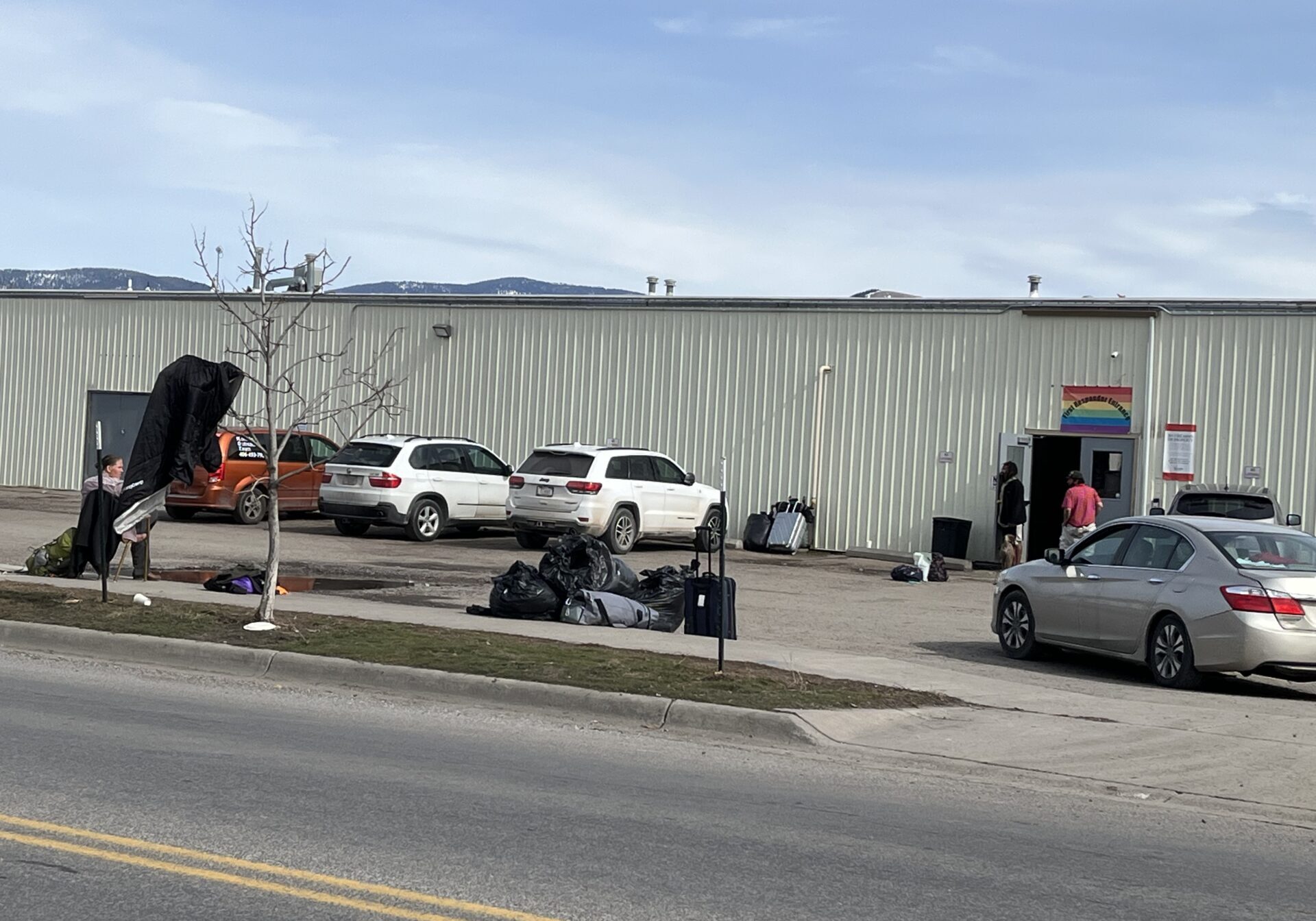
By Roy McKenzie
Mar 9, 2025
Missoula, MT – The City of Missoula has announced the permanent closure of the Johnson Street Emergency Shelter, initially established as a temporary pandemic response measure. Mayor Andrea Davis made the announcement during a press conference on Friday, outlining the phased closure plan, the rationale behind the decision, and the city’s approach to addressing homelessness moving forward.
Closure Timeline and Rationale
The shelter will begin reducing capacity in April, with full closure set for August. The City cited financial pressures and the expiration of federal emergency funds, including the CARES Act and American Rescue Plan Act (ARPA), as the primary reasons for the decision. ARPA, passed in 2021, provided economic relief during the COVID-19 pandemic.
Critics argue that the city misused these emergency funds by expanding a shelter it knew was financially unsustainable, creating an expectation among the homeless population that it would remain available indefinitely. The facility was expanded with federal and city taxpayer funds as a short-term solution to what the city characterized as pandemic-driven homelessness. With funding exhausted, city officials now claim to be shifting focus toward “permanent housing solutions,” raising questions about why a long-term approach is only now being prioritized after over four years since the shelters opening.
Some also contend that Missoula’s homelessness policies are deeply entrenched within a network of non-profits that have grown in influence while homelessness rates continue to rise. In 2013, the city adopted a resolution committing to a 10-year plan to end homelessness. Yet more than a decade later, homelessness has increased, with critics arguing that resources have supported non-profits more than direct housing solutions.
Support for Shelter Residents
To assist current shelter residents, the City and local partners, including United Way of Missoula County, are set to launch a “housing sprint” initiative. The city says this program aims to raise money from local non-profits and community members to connect individuals with stable housing through rental assistance, case management, medical referrals, and transportation support—a strategy previously employed in the “Housed for the Holidays” program, which placed 12 people in permanent housing over 60 days.
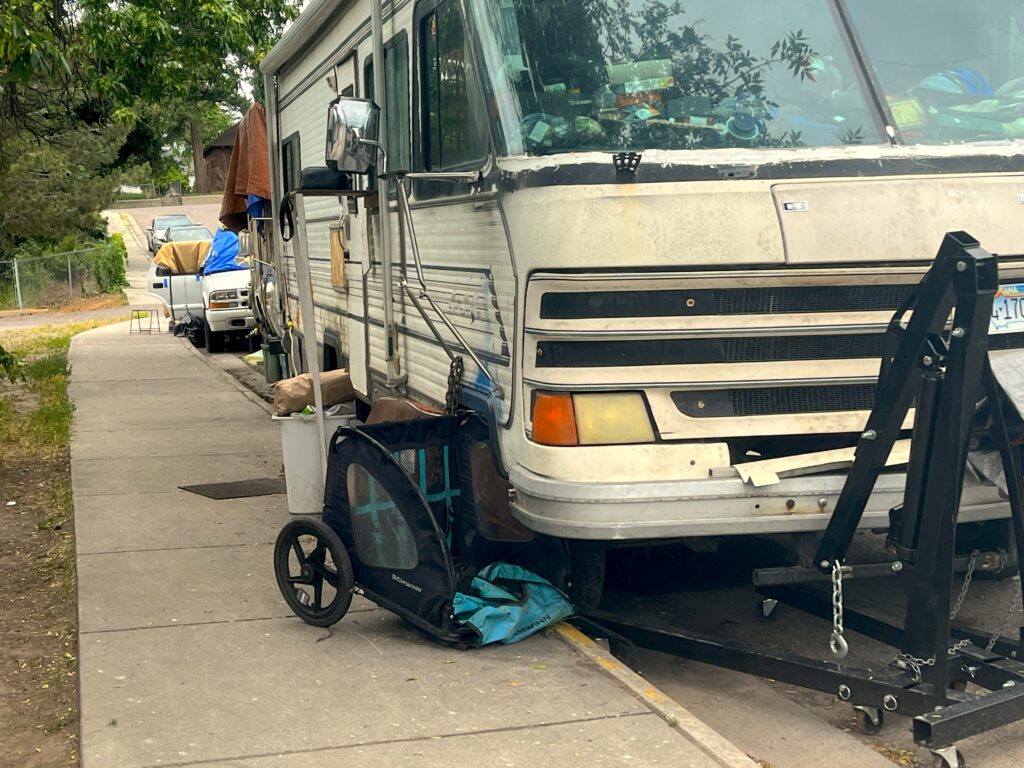
The Poverello Center, a non-profit shelter operating for 50 years, will continue its year-round services. Despite its non-profit designation, the Poverello Center is functionally a taxpayer-funded extension of Missoula’s homelessness bureaucracy, raising concerns about accountability. Following the closure announcement and the arrival of warmer weather, an increase in car camping around the shelter has been observed, in defiance of a city ordinance prohibiting camping within 300 feet of a shelter facility.
City Leadership Reactions
According to The Missoulian, most of Missoula’s City Council supported the shelter closure, including its two conservative members, Bob Campbell and Sandra Vasecka. They were the only council members to vote to defund the shelter in last year’s fiscal budget.
Campbell called on non-profits and faith groups to help fill the service gap, stating, “The city has limited financial resources, and the burden on taxpayers has reached its limit.”
Vasecka emphasized that the shelter had outlived its intended use. “The temporary funding mechanism was never feasible for the long term, and hopefully, this will help ease the never-ending tax increase burden on our constituents,” she said in an email.
Missoula’s Housing Strain: Migration and Non-profit Influence
The shelter’s closure raises questions about how the City will manage public camping and its broader impact on businesses and neighborhoods. Officials pledged to enforce Missoula’s outdoor sheltering ordinance which created a legal framework permitting urban camping.
According to the city, Missoula’s homeless numbers have stabilized around 600 to 700 homeless individuals—similar to pre-pandemic levels—but external factors may be exacerbating the housing crisis. Mayor Davis acknowledged in a recent meeting with the Montana Veterans Association that Missoula has received approximately 3,000 migrants and refugees over the past four years, many placed by non-profits such as Soft Landing Missoula and the International Rescue Committee (IRC). While Missoula is not officially a “sanctuary city,” it has supported refugee and migrant resettlement efforts.
Additionally, the COVID-19 pandemic spurred an influx of out-of-state transplants seeking refuge in Missoula and throughout Montana, further straining an already tight housing market. Critics argue that non-profit-driven migrant placement programs, coupled with pandemic-era migration and an expanding homeless services network, have made Missoula a magnet and have worsened housing shortages, increasing the burden on working residents seeking affordable housing.
Community Reactions
Samuel Pascal Redfern, CEO of the Montana Veterans Association, supported the shelter’s closure, citing concerns about crime and disorder in the area.
“The decision to close the Johnson Street Shelter is the correct one for Missoula,” Redfern stated. “The warehouse must be deconstructed, and this should never again be placed in the center of Missoula.”
Redfern described safety concerns near the shelter, where hundreds camped along the nearby train tracks amid reports of drug use, theft, and violence. He also noted that many shelter residents were from out of state.
“Residents and businesses in central Missoula had to deal with a mile and a half of encampments surrounding the Johnson Center,” Redfern said.
Redfern also revealed that his Montana Veterans Association office was forced to close due to the deteriorating conditions near the shelter, citing repeated clashes with the city and local non-profit All Nations. He described an ongoing battle with these entities over safety concerns and resource allocation.
According to Redfern, the city’s reliance on COVID-era funds to contract with the Poverello Center created an unsustainable financial situation, splitting a $1.8 million bill with Missoula County that will expire in August.
“We pray this will end a tumultuous chapter for veterans and for neighbors in central Missoula who were traumatized by the transients and crime this shelter created,” he said.
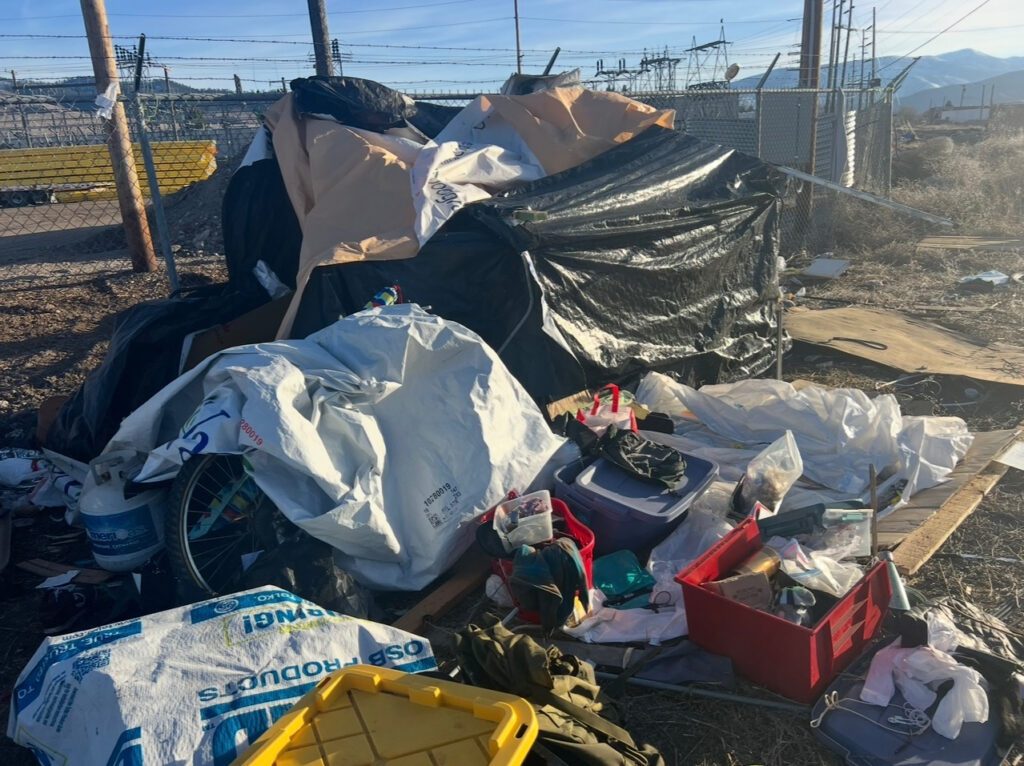
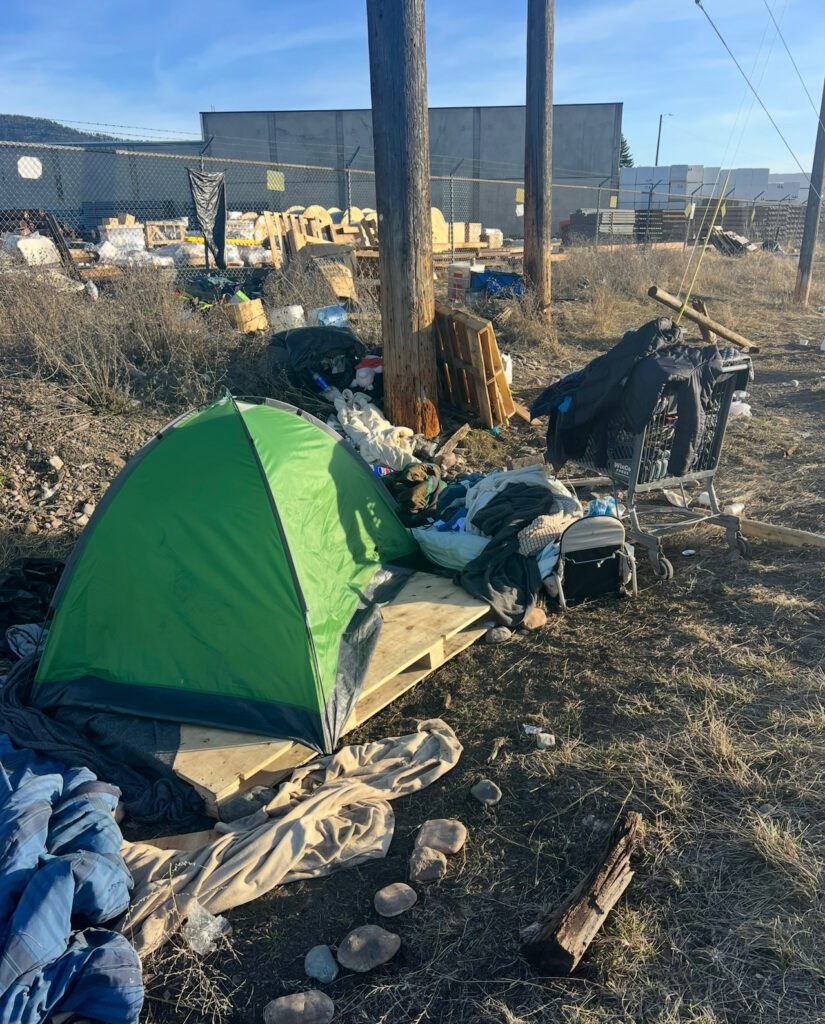
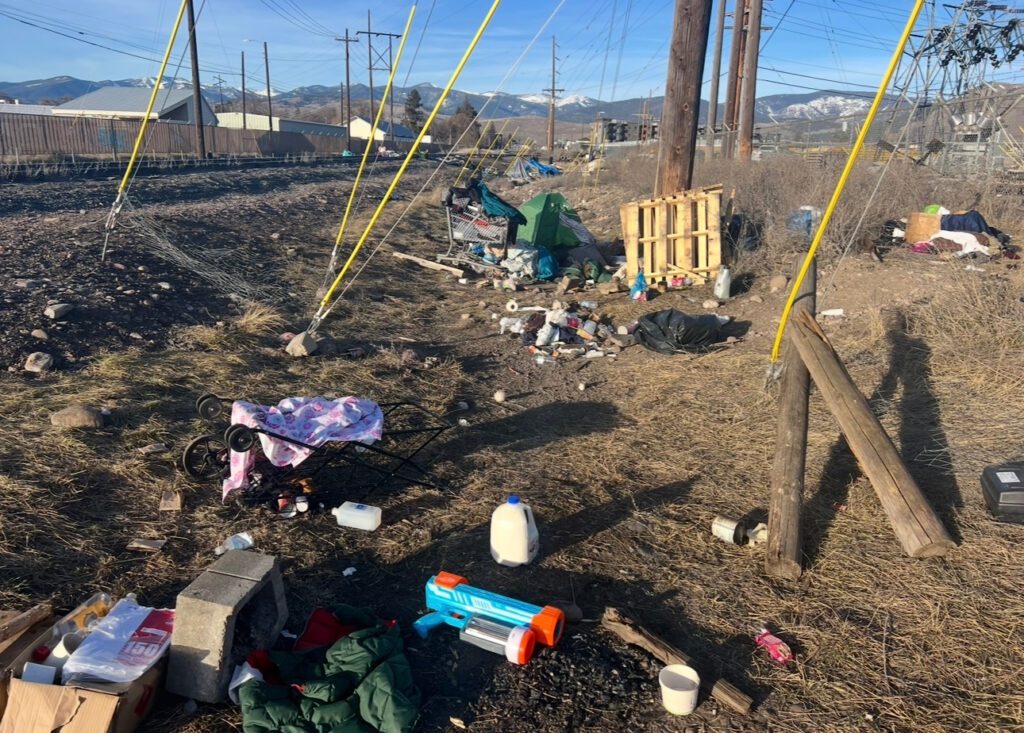
Photos: Montana Veterans Association.
Former Homeless Outreach Coordinator and freelance journalist Travis Mateer also weighed in on the closure.
“When I heard that the Johnson Street Shelter was closing, my first thought was this is a victory for the neighborhood, and it’s a victory they had to fight for,” Mateer said.
Mateer questioned the shelter’s effectiveness, suggesting it primarily cycled people through other homeless programs rather than placing them in stable housing. “I suspect this ‘low-barrier congregate shelter’ wasn’t necessarily placing people directly into conventional housing, but into other homeless programs, like the Transitional Safe Outdoor Space,” he said.
On the role of non-profits, Mateer expressed deep concern. “It’s worse than that. I think Missoula’s non-profits are promoting an entitled victimhood mentality among an entire sub-culture of people that, if internalized, becomes a psychologically crippling condition that can be just as damaging as a physical disability,” he said.
Regarding the city’s shift toward “permanent housing solutions,” Mateer suggested it was more of a messaging change than a true shift in strategy. “I think this new term could be reflective of emphasizing the Public/Private Partnerships with affordable housing developers that our city has been championing for years. That said, it’s more a shift in messaging than an actual shift in strategy.”
When asked what would actually reduce homelessness in Missoula, Mateer emphasized the need for stricter vetting of resource distribution. “If our local officials invested in a better process of filtering who can be helped from all the people just using our limited resources to subsidize their addictions, then maybe some headway could actually be made. While not ALL homeless people are members of the transient homeless lifestyle, a growing percentage of them ARE, and it’s a lifestyle many have no intention of quitting.”
Future Use of the Shelter Site
The City’s track record with repurposing properties raises concerns. The former Sleepy Inn Motel, another COVID-era project for the homeless, was eventually demolished and remains a vacant lot with a “For Lease” sign. Critics argue this reflects broader mismanagement of public assets, converting private properties into long-term eyesores instead of productive taxpayer investments.
The Johnson Street Shelter site’s future remains undecided. The City is considering redevelopment as part of the North MRL Triangle Redevelopment Plan, with deconstruction of the shelter warehouse slated for 2026. Given the City’s past failures, selling the property may be the best option to ensure productive use.
The Broader Implications
The closure of the Johnson Street Shelter is not just about one facility—it highlights deeper issues in Missoula’s approach to homelessness, resource management, and public accountability. The city’s failure to create sustainable solutions while expanding its homelessness bureaucracy has led to increasing burdens on taxpayers and worsening conditions for both residents and businesses.
Missoula now faces a choice: implement real solutions or continue the cycle of mismanagement.
Stay in the loop—or help power the reporting
Get stories like this delivered to your inbox—or become a supporter to help keep local news bold and free.

[…] an article today at Western Montana News I’m quoted regarding the impending closure of the Johnson Street Shelter, a “low barrier” […]